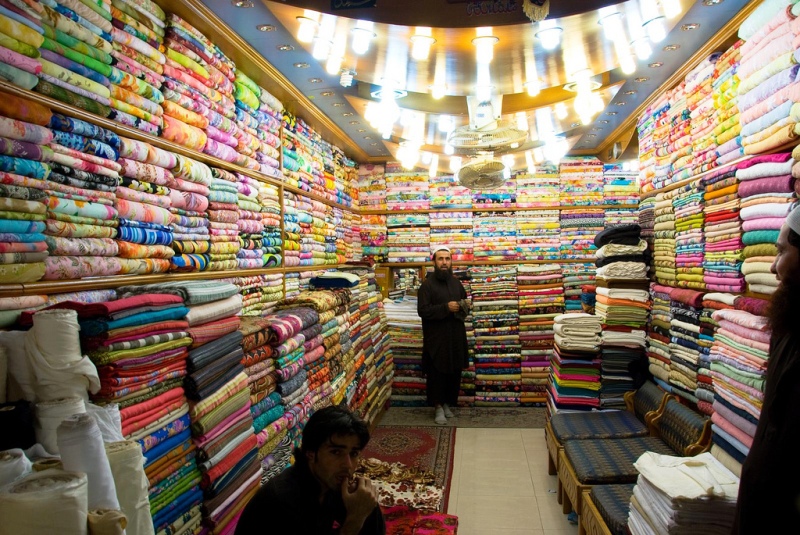
For years, the textile sector has been the country’s backbone as it provides employment and export revenues.
The textile sector in Pakistan contributes 57% to the country’s exports. The textile industry is the second largest employment sector in Pakistan.
Pakistan is the 8th largest exporter of textile commodities in Asia and textile sector contributes 8.5% to the GDP of Pakistan.
It is pertinent to mention that the exports of textile products posted a growth of 12.8 per cent year-on-year to $ 4.4 billion in 2017-18.
The total textile sector exports reached $ 7.72bn value-wise in July-January 2018 versus $ 7.2bn in the corresponding period of last year, reflecting an increase of 7.18 pc
In the 1950s, textile manufacturing emerged as a central part of Pakistan's industrialization, shortly following independence from the British rule in the South Asia. In 1974, the Pakistan government established the Cotton Export Corporation of Pakistan (CEC).
Between 1947 and 2000, the number of textile mills in Pakistan increased from 3 to 600. In the same time spindles increased from 177,000 to 805 million.
Cotton spinning is perhaps the most important segment in the Pakistan textile industry with 521 units installed and operational.
Synthetic fibers prepared with nylon, polyester, acrylic, and polyolefin dominate the market.
Three types of filament yarn are also produced in Pakistan. These are acetate rayon yarn, polyester filament yarn, and nylon filament yarn.
Textile products manufactured from wool are also famous across the country and they include woolen yarn, acrylic yarn, fabrics, shawls, blankets, and carpets.
Artificial silk is also produced in Pakistan. This fiber resembles silk but costs less to produce. There are about 90,000 looms in the country.
There are many famous clothing brands in Pakistan who use locally produced fabrics due to its high quality.
According to consumers the fabric produced in Pakistan is high in quality as compared to fabric produced in other countries.
In recent years, Pakistan has faced competition from regional players including Bangladesh, India and Vietnam.
Pakistan is currently facing a large-scale energy crisis. The government manages the deficit through daily power cuts (or blackouts). These power cuts have significantly impacted manufacturing industries in Pakistan.
272**6125**1396
Follow us on Twitter @IrnaEnglish
 solhkhabar | Peace International News Agency Peace International News Agency , Peace News , International Agency News of Peace
solhkhabar | Peace International News Agency Peace International News Agency , Peace News , International Agency News of Peace